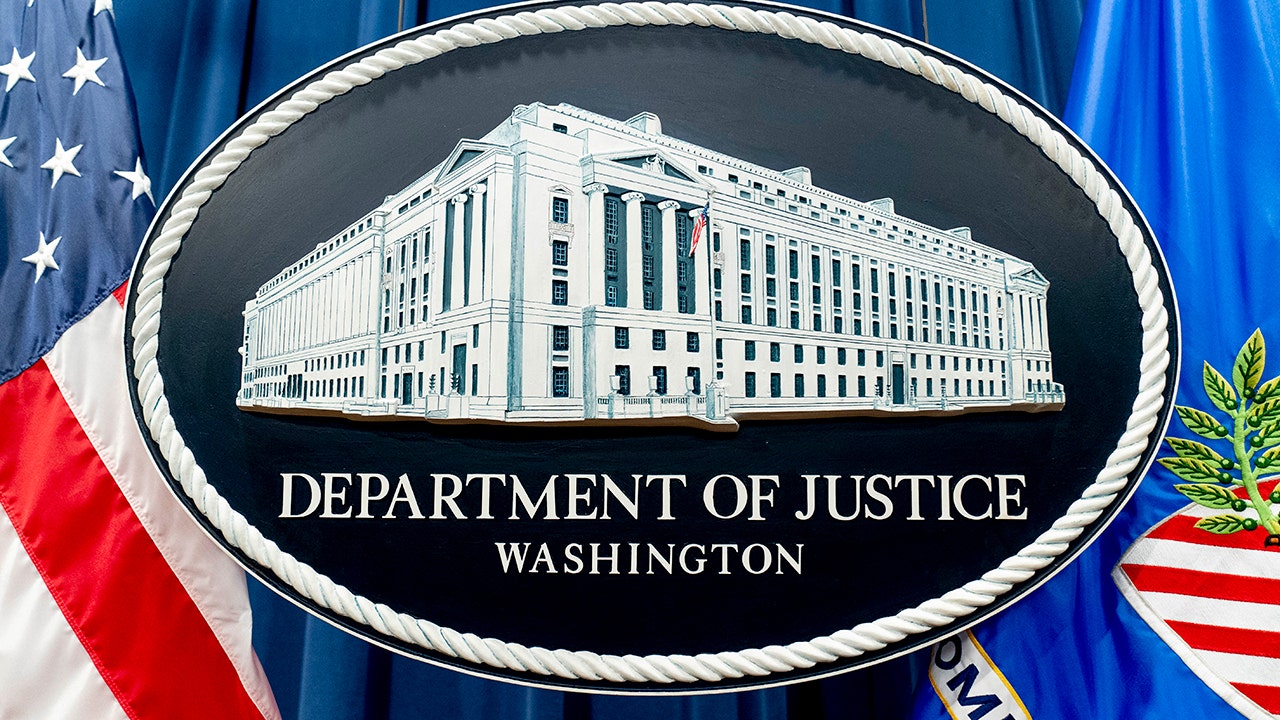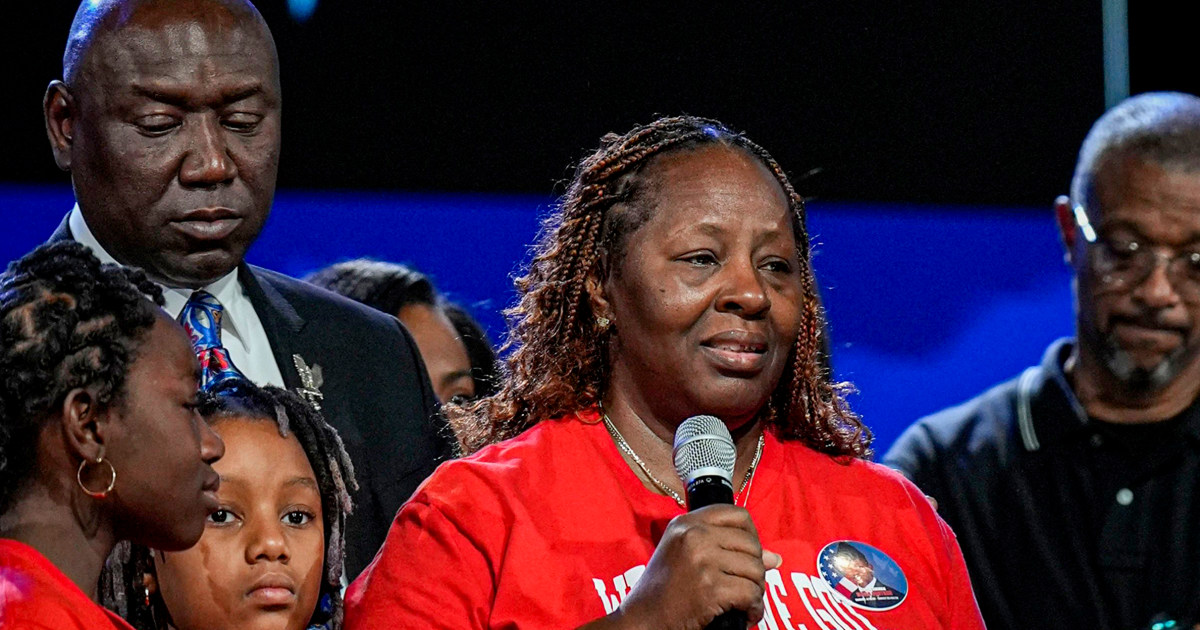World
Much-needed payout grows to life-altering levels for tiny teams that advance in Women’s World Cup

MELBOURNE, Australia (AP) — Players who reached the knockout round at the Women’s World Cup got larger individual bonuses that are life-changing to many of them.
FIFA designated $30,000 for the 732 players among 32 teams in the tournament field. The payout rises to $60,000 for players on the 16 teams that advanced out of group play.
The money grows to $90,000 for players in the quarterfinals and its a significant payday for many of the players, particularly those that have had financial disputes with their federations over pay and support.
Hildah Magaia, appropriately nicknamed the “Breadwinner” of South Africa’s squad, helped the Banyana Banyana advance out of group play, into the knockout stage, and double her bonus.
She appropriately plans to use the money to care for her mother.
“I’ll be able to do everything for my mother because I’m the one who’s taking care of her,” she said. “I’m the breadwinner, so I’ll be doing everything for my mom.”
Deneisha Blackwood, part of the Jamaica squad eliminated by Colombia in the knockouts, called the payouts a good start for her team. Jamaica has had financial difficulties and needed a crow-funding site to raise money for its travel to the tournament.
“Obviously we as players have a life outside of football and I think prize money, like that rewards us in ways we can’t imagine. A lot of us have bills to pay and family to take care of,” said Blackwood said, “and I think for the younger generation, especially, football doesn’t make you a lot of money. So for (girls) to see us doing what we love and realize that you can make a living off it, I think it’s very motivational.”
No one can ensure all the players will receive their guaranteed bonuses.
The global players union, FIFPRO, last year sent a letter to FIFA on behalf of players from 25 national teams asking for better conditions within the tournament. FIFA announced the individual bonues of the $110 million prize pool in June.
But FIFA President Gianni Infantino said before the start of the World Cup that the federations would be responsible for distributing the payments. He was unable to make any guarantee that funds would reach the players.
FIFPRO said it was working to establish bank accounts for the players as well as an auditing process.
But there have already been snags.
FIFPRO announced late Tuesday that it was assisting Nigeria’s players in a dispute with their federation concerning bonus payments, camp allowances and expenses, some dating back to 2021. Nigeria took European champion England to penalty kicks in a quarterfinal loss.
“The team is extremely frustrated that they have had to pursue the Nigeria Football Federation for these payments before and during the tournament and may have to continue doing so afterwards,” FIFPRO said in a statement.
“It is regrettable that players needed to challenge their own federation at such an important time in their careers.”
In the run-up to the World Cup, South Africa players boycotted a warm-up match against Botswana because the individual payments weren’t included in their contracts. The pay dispute ended when billionaire Patrice Motsepe, the president of the African Football Confederation, agreed to contribute $320,000 to be equally distributed among the players.
Some of the Jamaican players took to social media before the World Cup to complain about a lack of support and funding for the team. That spurred two crowdfunding campaigns to raise money for the Reggae Girlz.
The Jamaican Football Federation released a statement saying reports about the team’s financial struggles had taken away from the team’s accomplishments. The Reggae Girlz reached the Round of 16 but fell 1-0 to Colombia on Tuesday night.
“We of course welcome anyone who wants to contribute to the development of our national football teams, which have done well and made Jamaica proud,” the Jamaican federation said in a statement. “We look forward to working with these organizations and sponsors in continuing to fulfill the dreams of many youngsters, who have realized their dreams through football, and thank our supporters.”
Nigeria forward Uchenna Kanu said the money was not the team’s motivation — playing well was. Nigeria reached the Round of 16, but fell to England on penalties after a scoreless draw on Monday.
“But of course, if we get paid that much money, of course it’ll have a huge impact on our lives. We have families, we have things to take care of with money. That’s important for us as well,” Kanu said.
Players from the United States won a contract with U.S. Soccer last year that guarantees them equal pay with their men’s national team counterparts. As part of the agreement, all tournament prize money funds are split between the two teams, with a percentage going to the federation.
The total prize pool at this Women’s World Cup is more than three times the $30 million prize fund that was paid out at the 2019 Women’s World Cup in France. But it’s still far less than the $440 million in prize money for the men’s World Cup in Qatar last December.
___
AP Sports Writer John Pye in Brisbane, Australia, contributed to this report.
___
AP Women’s World Cup coverage: https://apnews.com/hub/fifa-womens-world-cup

World
The CW’s Top Exec on Walker’s Uncertain Fate, Potential All American ‘Reboot’ and Superman & Lois’ ‘F–king Awesome’ Sendoff

ad
World
Justice Dept. makes arrests in North Korean identity theft scheme involving thousands of IT workers

The Justice Department announced Thursday multiple arrests in a series of complex stolen identity theft cases that officials say are part of a wide-ranging scheme that generates enormous proceeds for the North Korean government, including for its weapons program.
The conspiracy involves thousands of North Korean information technology workers who prosecutors say are dispatched by the government to live abroad and who rely on the stolen identities of Americans to obtain remote employment at U.S.-based Fortune 500 companies, jobs that give them access to sensitive corporate data and lucrative paychecks. The companies did not realize the workers were overseas.
NORTH KOREA’S MENACING NUCLEAR THREAT IS TOO DANGEROUS TO IGNORE. US MUST LEAD BEFORE TIME RUNS OUT
The fraud scheme is a way for heavily sanctioned North Korea, which is cut off from the U.S. financial system, to take advantage of a “toxic brew” of converging factors, including a high-tech labor shortage in the U.S. and the proliferation of remote telework, Marshall Miller, the Justice Department’s principal associate deputy attorney general, said in an interview.
The seal for the Justice Department is photographed in Washington, Nov. 18, 2022. The Justice Department has announced three arrests in a complex stolen identity scheme that officials say generates enormous proceeds for the North Korean government, including for its weapons program. (AP Photo/Andrew Harnik)
The Justice Department says the cases are part of a broader strategy to not only prosecute individuals who enable the fraud but also to build partnerships with other countries and to warn private-sector companies of the need to be vigilant — and not duped — about the actual identities of the people they’re hiring.
FBI and Justice Department officials launched an initiative in March centered on the fraud scheme and last year announced the seizure of more than a dozen website domains used by North Korean IT workers.
“More and more often, compliance programs at American companies and organizations are on the front lines of protecting our national security,” Miller said. “Corporate compliance and national security are now intertwined like never before.”
The Justice Department said in court documents in one case that more than 300 companies — including a high-end retail chain and a “premier Silicon Valley technology company” — have been affected and that more than $6.8 million in revenue has been generated for the workers, who are based outside of the U.S., including in China and Russia.
Those arrested include an Arizona woman, Christina Marie Chapman, who prosecutors say facilitated the scheme by helping the workers obtain and validate stolen identities, receiving and hosting laptops from U.S. companies who thought they were sending the devices to legitimate employees and helping the workers connect remotely to companies.
According to the indictment, Chapman ran more than one “laptop farm” where U.S. companies sent computers and paychecks to IT workers they did not realize were overseas.
At Chapman’s laptop farms, she allegedly connected overseas IT workers who logged in remotely to company networks so it appeared the logins were coming from the United States. She also is alleged to have received paychecks for the overseas IT workers at her home, forging the beneficiaries’ signatures for transfer abroad and enriching herself by charging monthly fees.
Other defendants include a Ukrainian man, Oleksandr Didenko, who prosecutors say created fake accounts at job search platforms that he then sold to overseas workers who went on to apply for jobs at U.S. companies. He was was arrested in Poland last week, and the Justice Department said it had seized his company’s online domain.
A Vietnamese national, Minh Phuong Vong, was arrested in Maryland on charges of fraudulently obtaining a job at a U.S. company that was actually performed by remote workers who posed as him and were based overseas.
It was not immediately clear if any of the three had lawyers.
Separately, the State Department said it was offering a reward for information about certain North Korean IT workers who officials say were assisted by Chapman.
And the FBI, which conducted the investigations, issued a public service announcement that warned companies about the scheme, encouraging them to implement identity verification standards through the hiring process and to educate human resources staff and hiring managers about the threat.
World
Taiwan grapples with divisive history as new president prepares for power

Taipei, Taiwan – Even as Taiwan prepares for the inauguration of its eighth president next week, it continues to struggle over the legacy of the island’s first president, Chiang Kai-shek.
To some, Chiang was the “generalissimo” who liberated the Taiwanese from the Japanese colonisers. To many others, he was the oppressor-in-chief who declared martial law and ushered in the period of White Terror that would last until 1992.
For decades, these duelling narratives have divided Taiwan’s society and a recent push for transitional justice only seems to have deepened the fault lines. Now, the division is raising concern about whether it might affect Taiwan’s ability to mount a unified defence against China, which has become increasingly assertive in its claim over the self-ruled island.
“There is a concern when push comes to shove if the civilians work well with the military to defend Taiwan,” said historian Dominic Meng-Hsuan Yang of the University of Missouri in the United States.
On February 28, 1947, Chiang’s newly-arrived Kuomintang (KMT) troops suppressed an uprising by Taiwan natives, killing as many as 28,000 people in what became known as the February 28 Incident. In the four-decade-long martial law era that followed, thousands more perished.
This traumatic history met its official reckoning in 2018, when the Taiwan government set up its Transitional Justice Commission modelled after truth and reconciliation initiatives in Africa, Latin America and North America to redress historical human rights abuses and other atrocities.
When the commission concluded in May 2022, however, advocates and observers said they had seen little truth and hardly any reconciliation.
Almost from the first days of the commission, the meting-out of transitional justice became politicised across the blue-versus-green demarcation that has long defined Taiwan’s sociopolitical landscape, with blue representing KMT supporters and green the ruling Democratic Progressive Party (DPP).
A recently published anthology entitled Ethics of Historical Memory: From Transitional Justice to Overcoming the Past explains how the way Taiwanese remember the past shapes how they think about transitional justice. And as that recollection is determined by which camp they support, each champions their own version of Taiwan’s history.
“That’s why transitional justice seems so stagnant now,” explained Jimmy Chia-Shin Hsu, research professor at the legal research institute Academia Sinica who contributed to and edited the book. “Whatever truth it uncovers would be mired in the blue-green narrative.”
A non-partisan view, Hsu said, is to credit the DPP with codifying transitional justice and Lee Teng-hui, the first democratically elected KMT president, with breaking the taboo on broaching the February 28 Incident.
The past shaping the future
In February, Betty Wei attended the commemoration for the February 28 incident for the first time and listened intently to the oral history collected from the survivors. Wei, 30, said she wanted to learn more about what happened because her secondary school textbook had brushed over what many consider a watershed event in a few cryptic lines, and many of her contemporaries showed little interest.
“In recent years the voices pushing for transitional justice have grown muted,” Wei told Al Jazeera. “A lot of people in my generation think the scores are for previous generations to settle.”

In Taiwan, the past is never past, and rather it is fodder for new fights.
As the DPP gears up for an unprecedented third consecutive term, the unfinished business of removing the island’s remaining statues of Chiang has resurfaced as the latest front in what Yang, the historian, described to Al Jazeera as “this memory war”.
More than half of the initial 1,500 monuments have been taken down over the past two years, with the remaining statues mostly on military installations.
Yang argues that is because the top brass rose through the ranks under martial law and many still regard Chiang as their leader, warts and all. For them, toppling the statues would be an attack on their history.
The statues embody “the historical legacy the military wants to keep alive,” Yang said. “That’s a source of tension between the military and the DPP government.”
On the eve of William Lai Ching-te taking his oath as the island’s next president, Taiwanese will for the first time mark the “White Terror Memorial Day” on May 19, the day when martial law was declared in 1949.
While it is clear Taiwanese have promised to never forget, whom and how to forgive has become far murkier.
As the former chairman of the Taiwan Association for Truth and Reconciliation, the first NGO advocating for the cause, Cheng-Yi Huang lauded the government’s move to take over the KMT’s private archives in recent years but lamented there had been too little truth-seeking so far.
For example, under the February 28 Incident Disposition and Compensation Act, Huang said many have chosen to stay silent about their complicity because only victims get compensation.
However, Taiwan’s tumultuous history means the line between victim and victimiser is rarely clear-cut.

By digging into military archives, Yang has shed light on how Chinese were kidnapped and pressed into service by the KMT in the last years of the Chinese Civil War. Those who tried to flee were tortured and even murdered. And the native Taiwanese who rose up to resist KMT’s suppression were persecuted as communists.
“Under martial law, the military was seen as an arm of the dictatorship, but they were also victims of the dictator’s regime,” Yang told Al Jazeera. “The transitional justice movement has missed the opportunity to reconcile Taiwanese society with the military.”
To Hsu, Beijing’s belligerence demands Taiwanese of all stripes find a common cause.
“As we’re facing the threat from the Chinese Communist Party, it’s imperative that we unite in forging a collective future,” said Hsu, to a standing-room-only book talk during the Taipei International Book Exhibition in late February.
“And how we remember our past will shape this future of ours.”
-

 Politics1 week ago
Politics1 week agoBiden takes role as bystander on border and campus protests, surrenders the bully pulpit
-

 Politics1 week ago
Politics1 week ago'You need to stop': Gov. Noem lashes out during heated interview over book anecdote about killing dog
-

 Politics1 week ago
Politics1 week agoRFK Jr said a worm ate part of his brain and died in his head
-

 News1 week ago
News1 week agoMan, 75, confesses to killing wife in hospital because he couldn’t afford her care, court documents say
-

 World1 week ago
World1 week agoPentagon chief confirms US pause on weapons shipment to Israel
-

 Politics1 week ago
Politics1 week agoHere's what GOP rebels want from Johnson amid threats to oust him from speakership
-

 World1 week ago
World1 week agoPro-Palestine protests: How some universities reached deals with students
-

 World1 week ago
World1 week agoConvicted MEP's expense claims must be published: EU court
















